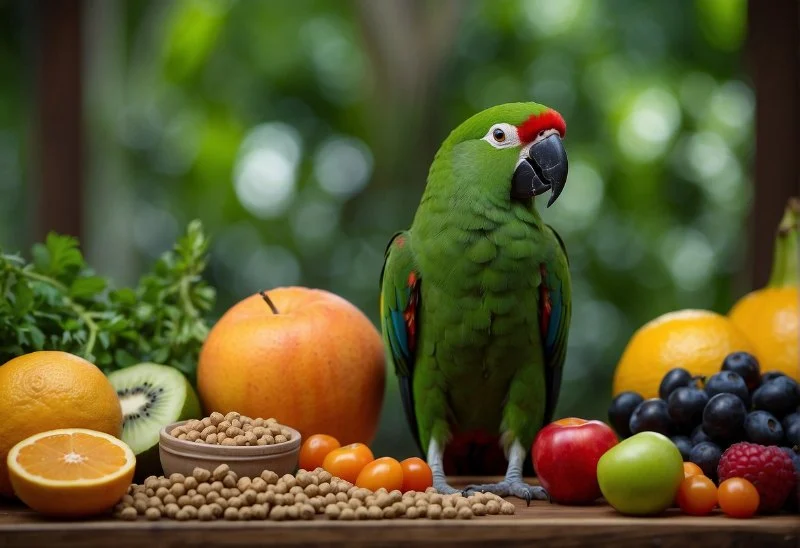
- 1-Why Is a Proper Diet Important for Pet Parrots?
- 2-Seeds for Parrots: The Good and the Bad
- 3-Pellets for Parrots: A Balanced Choice
- 4-Fresh Foods for Parrots: A Healthy Treat
1-Why Is a Proper Diet Important for Pet Parrots?
As pet owners, we often think about the health and happiness of our parrots, and one of the most important factors in ensuring their well-being is providing them with the right diet. Just like any other pet, parrots require a balanced and nutritious diet to thrive. A poor diet can lead to a variety of health issues, including obesity, malnutrition, and even early death.
In the wild, parrots have access to a variety of fruits, seeds, and vegetables that provide them with all the nutrients they need. However, when living in a domestic setting, it's essential for pet parrot owners to recreate this variety and balance by carefully selecting seeds, pellets, and fresh foods. This combination helps keep them healthy, active, and mentally stimulated.
2-Seeds for Parrots: The Good and the Bad
Seeds are often the first thing that comes to mind when thinking about parrot diets. While they can be a tasty treat for your feathered friend, seeds alone are not enough to maintain their health. Seeds are high in fat, and feeding your parrot too many of them can lead to obesity and heart problems.
The Pros of Seeds
Seeds are a natural part of a parrot’s diet, providing essential fats and oils that can help keep their feathers healthy. They are also a good source of energy for your parrot, especially during periods of activity or breeding. Some parrot species, like budgies, love to nibble on a variety of seeds, which can provide them with mental stimulation.
The Cons of Seeds
While seeds have their benefits, they should only make up about 10-15% of your parrot’s diet. Over-reliance on seeds can result in nutritional imbalances and even obesity. It's important to provide variety by incorporating pellets and fresh foods to round out their diet and reduce the risk of fatty liver disease and other related health issues.
3-Pellets for Parrots: A Balanced Choice
Pellets are a more balanced alternative to seeds and should be the primary food source for your pet parrot. High-quality pellets are specifically designed to provide all the essential nutrients—vitamins, minerals, protein, and fiber—that parrots need. They also help prevent selective eating, which can occur when a parrot picks and chooses only their favorite foods, often ignoring healthier options.
The Benefits of Pellets
Pellets provide a balanced diet with consistent nutrition, making it easier to meet your parrot's dietary needs. They are usually available in a variety of sizes, which is great for parrots of all species. Pellets are formulated to provide everything your parrot needs for optimal health, including nutrients that may be missing from a diet consisting solely of seeds.
Choosing the Right Pellets
When selecting pellets for your parrot, look for options that are free of artificial colors, preservatives, and sugars. Organic, high-quality pellets are generally the best option. Be sure to match the pellet size to your parrot’s beak and size, as larger birds may need larger pellets, while smaller birds require smaller pellets to avoid choking.
4-Fresh Foods for Parrots: A Healthy Treat
Fresh foods should make up about 25-30% of your parrot's diet. Fresh fruits and vegetables provide important vitamins, antioxidants, and hydration that pellets and seeds cannot offer alone. Introducing a variety of fresh foods helps your parrot stay mentally and physically stimulated while providing extra nutrients.
Some healthy, safe fresh foods for parrots include leafy greens (like kale and spinach), carrots, apples, grapes, sweet potatoes, and berries. Avoid feeding your parrot avocados, chocolate, onions, or caffeine, as these can be toxic to them.
Parrots, like humans, benefit from a diverse diet. Offering a mix of different fruits, vegetables, and nuts will keep them engaged and encourage them to eat a wide range of nutrients. Be sure to wash all fruits and vegetables thoroughly to remove pesticides and contaminants before offering them to your bird.
If you're looking for the best products to support your parrot's health, be sure to check out our curated collection at Omnia Pet for the highest-quality seeds, pellets, and fresh food options.
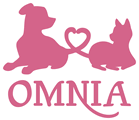

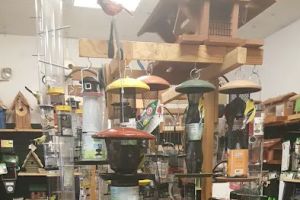

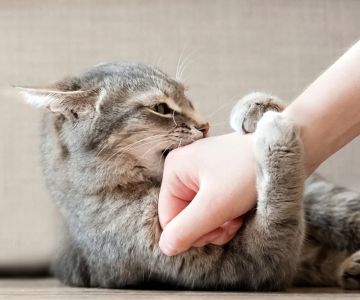
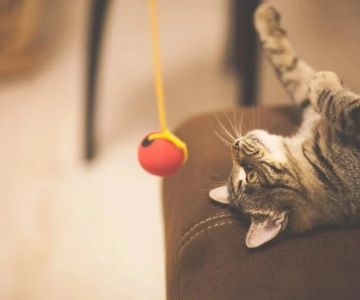
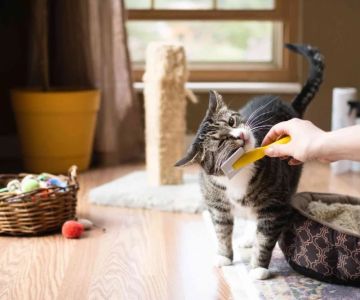
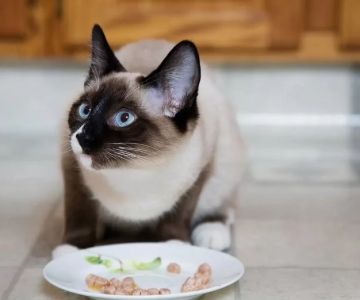
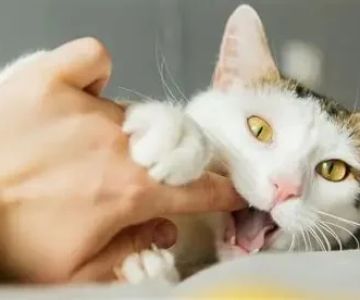
 Hollywood Feed4.0 (184 reviews)
Hollywood Feed4.0 (184 reviews)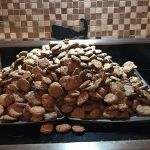 Brew Biscuits5.0 (2 reviews)
Brew Biscuits5.0 (2 reviews) All Friends Animal Hospital4.0 (446 reviews)
All Friends Animal Hospital4.0 (446 reviews) Kittylandkittens LLC0.0 (0 reviews)
Kittylandkittens LLC0.0 (0 reviews) Village Animal Clinic4.0 (212 reviews)
Village Animal Clinic4.0 (212 reviews) Rift Lake Aquatics4.0 (165 reviews)
Rift Lake Aquatics4.0 (165 reviews) Understanding Pet Insurance: What Does It Actually Cover?
Understanding Pet Insurance: What Does It Actually Cover?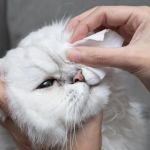 How to Keep Your Kitten's Eyes Clean and Free of Discharge
How to Keep Your Kitten's Eyes Clean and Free of Discharge The Truth About Heartworm Disease: Prevention is Cheaper Than Cure
The Truth About Heartworm Disease: Prevention is Cheaper Than Cure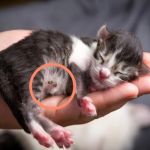 Why Is My Kitten's Belly Button Showing? | Omnia Pet
Why Is My Kitten's Belly Button Showing? | Omnia Pet Why Does My Cat Bite Me Gently? Love Bites Explained
Why Does My Cat Bite Me Gently? Love Bites Explained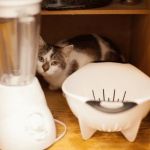 How to Stop Your Kitten from Getting into Cabinets
How to Stop Your Kitten from Getting into Cabinets